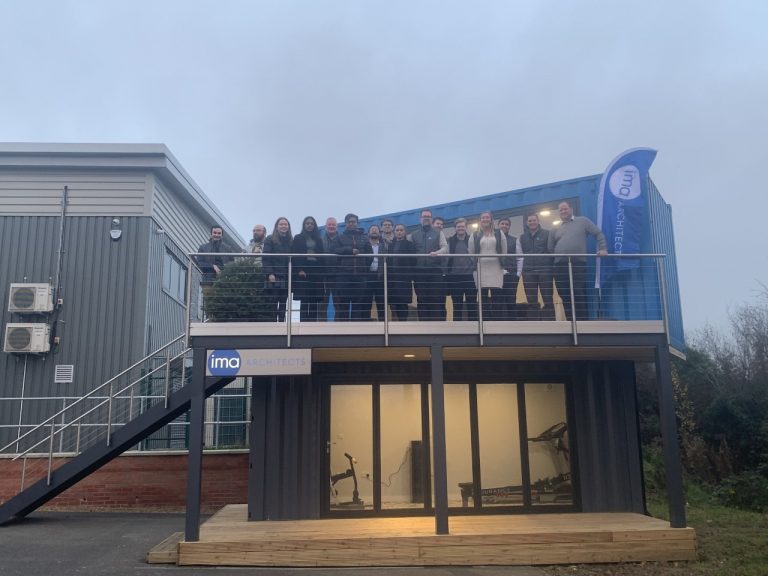Insurance broker boosts business development and account management teams
Alstom secures further Irish order
Coventry City signs new agreement with Frasers Group to stay at stadium
Bounty – the taste of PRadise: By Greg Simpson, founder of Press for Attention PR
2023 Business Predictions: Parm Bhangal of Bhangals Construction Consultants
“Challenging year” sees pre-tax loss and revenue dip for X-ray business
Support for more Derbyshire businesses to reduce energy use and cut carbon
- installing solar panels
- replacing old heating systems with air/ground source heat pumps
- retrofitting old boilers to make them more energy efficient
- fitting electric vehicle charging points at their premises
- installing energy efficient LED lighting
- improving the insulation in their premises to help prevent heat escaping
- funding to replace equipment and machinery with energy-saving alternatives
- battery storage for solar generated energy.
New Northampton logistics hub creating 7,500 jobs reaches key milestones
People with bright ideas invited to create their own businesses with expert support and £75k prize fund
IMA Architects unveil ‘UK first’ technology
IMA Architects (IMA) has unveiled a successful test prototype of a new technology that will create an exact digital replica of a building. Known as ‘The Digital Twin’, the technology will help companies gain more data about a building’s performance in real time, helping them to save money by monitoring and reducing a building’s energy use.
The company has transformed two former shipping containers at its head office in Blaby, Leicestershire into the ‘IMA Digital Pods’. The two structures are now a staff gym and a coffee bar – but with a difference. The pods have been equipped with a wide range of sensors to create a ‘Digital Twin’. Believed to be the first of its kind in the UK, IMA’s ‘Digital Twin’ prototype has been designed – and successfully tested – to accurately represent a physical space within a virtual model. In this instance, the staff gym and coffee area are replicated exactly, digitally. Linked to Building Information Modelling (BIM), sensors in the physical building feed data back to the virtual model, showing how even the slightest change could impact performance in the real world. This grants the building owner or manager access to real-time data with an in-depth analysis of a building’s performance. This is significant as it means that simulations can also be run in the virtual space, allowing users to gain information on important metrics such as energy consumption to carbon emissions, informing decisions that are made in the real world. The IMA Digital Pods use Internet of Things (IoT) sensors to collect real-time data from the relevant spaces and feed it back “through a cloud platform” into a 3D model that has accurate information about the pods’ structure and assets installed within. This data is then analysed and visualised virtually within the Digital Model and can be stored in the cloud for further analysis. Commands can also be sent from the Digital Model to activate or deactivate devices in the Pods as well as monitoring performance. Anthony Day, Managing Director of IMA Architects, says: “The creation of the IMA Digital Pods has enabled us to develop our knowledge within this emerging area. We are putting the theory into practice so that we can implement this technology on our client projects. “We believe that the successful use of BIM and the ‘Digital Twin’ is the future of building design, and having more buildings with this level of information and intelligence will play a huge part in helping the UK meet its Net Zero targets, reducing costs for businesses along the way. “Amongst other things, it has the potential to lower construction costs by 33%, increase delivery speed by 50%, and lower emissions by 50%, the latter of which is incredibly important as the Government continues to set out plans to decarbonise all sectors of the UK economy. And with increasing energy costs, the Digital Twin will be an incredibly valuable cost-saving tool, leading the way to a better, greener, future.” IMA unveiled the Digital Pods at a launch event with staff and clients at its Blaby HQ on Friday 2 December 2022.Construction gets underway on 51,000 sq ft speculative unit at Mercia Park
Gedling Borough Council secures £2.9m to invest in local communities
Green jobs in the East Midlands double in the last 12 months
Nottingham heritage consultancy merges with planning, design and development consultancy
Newark & Sherwood District Council allocated £3.28m to support communities and accelerate economic growth
East Midlands manufacturers see tough year ahead
Manufacturers in the East Midlands are looking at a tough twelve months ahead with the sector likely to contract in the face of a deteriorating economic outlook at home and abroad according to a survey published today by Make UK and business advisory firm BDO.
The forecast was made in the Make UK/BDO Q4 Manufacturing Outlook survey which shows manufacturing contracting by -3.2% in 2023. This comes on the back of a forecast -4.4% contraction this year, although Make UK stressed the number for this year is relative to a very strong 2021 which reflected the pandemic bounceback.
However, given Make UK has consistently been revising down its forecasts for manufacturing growth in 2022 throughout this year from 3% in March to 1.7% in July, 0.6% in September and now, a contraction of -4.4% (1), it highlights the extent to which conditions for the sector have weakened significantly, especially in the final quarter of the year.
In the last quarter, output in the East Midlands held up in line with the national picture at a balance of +12%, although total orders in the last quarter dropped substantially to a balance of -12%, which is likely to feed through into depressed output in the future. Despite this recruitment intentions remain strong in the East Midlands given labour shortages and the scramble to attract and retain talent.
As well as downgrading its forecasts for manufacturing Make UK is forecasting GDP growth of +4.4% this year but, a contraction next year of -0.9%.
In response, Make UK warned of the danger of policymakers sleepwalking into an acceptance of little or no growth as a normal economic scenario. It re-iterated its call for Government to develop a wide-ranging industrial strategy with a long-term vision at national and regional level.
Furthermore, while the Chancellor took some welcome measures in the Autumn Statement to help ease the short-term pressures on business, Make UK said more measures will be needed if economic prospects continue to weaken. These should include:
- Alleviating labour shortages with temporary easements to the migration system and ensure manufacturers have the funds to train and retrain employees by expanding the tax exemption for work related training into a wider Training Investment Allowance.
- Tackling the increased cost to business by extending business rates reliefs for retail hospitality and leisure to manufacturing
- Spurring on much needed immediate investment by allowing first year allowances
- Re-thinking recent decisions on the R&D tax relief for small businesses to ensure manufacturers are not deterred from investing in critical innovations
Charlotte Horobin, region director for Make UK in the Midlands, said: “There is simply no sugar-coating the outlook for next year and possibly beyond. Even for a sector as resilient as manufacturing these are remarkably challenging times which are testing even the best and most successful of companies to the limit.
“As a result, while the Chancellor has already brought in some welcome measures to help ease the cost pressure on companies in the short term, it may not be too long before we see him having to bring more firepower to ease cost pressures.
“However, the bigger issue is that the UK risks sleepwalking into an acceptance that little or no growth is the norm. Government needs to work with industry as a matter of urgency to deliver a long-term industrial strategy that has growth at national and regional levels at its heart.”
Jon Gilpin, head of Manufacturing at BDO in the Midlands, said: “The new government recently put forward welcome measures to assist the sector in the short term. However, the government needs to provide a plan on how they intend to support the sector in the long term. Businesses need to be able to plan their future with confidence that the government will support them.
“Without adequate government assistance, businesses will be inclined to hold onto their funds to keep the doors of their business open, rather than investing in technologies and capabilities which will make them competitive in the longer-term. For instance, manufacturers may delay investing in automation technology and green initiatives, thus impacting the future competitiveness of the sector.”
SME Flotec to upgrade entire fleet of trains for Northern
2023 Business Predictions: James Pinchbeck, partner, Streets Chartered Accountants
East Midlands businesses ramp up video marketing in 2022
Glowfrog has a ThreeBestRated® award, recognising it as one of the very best video production services across Derby, Nottingham and the Midlands.






















